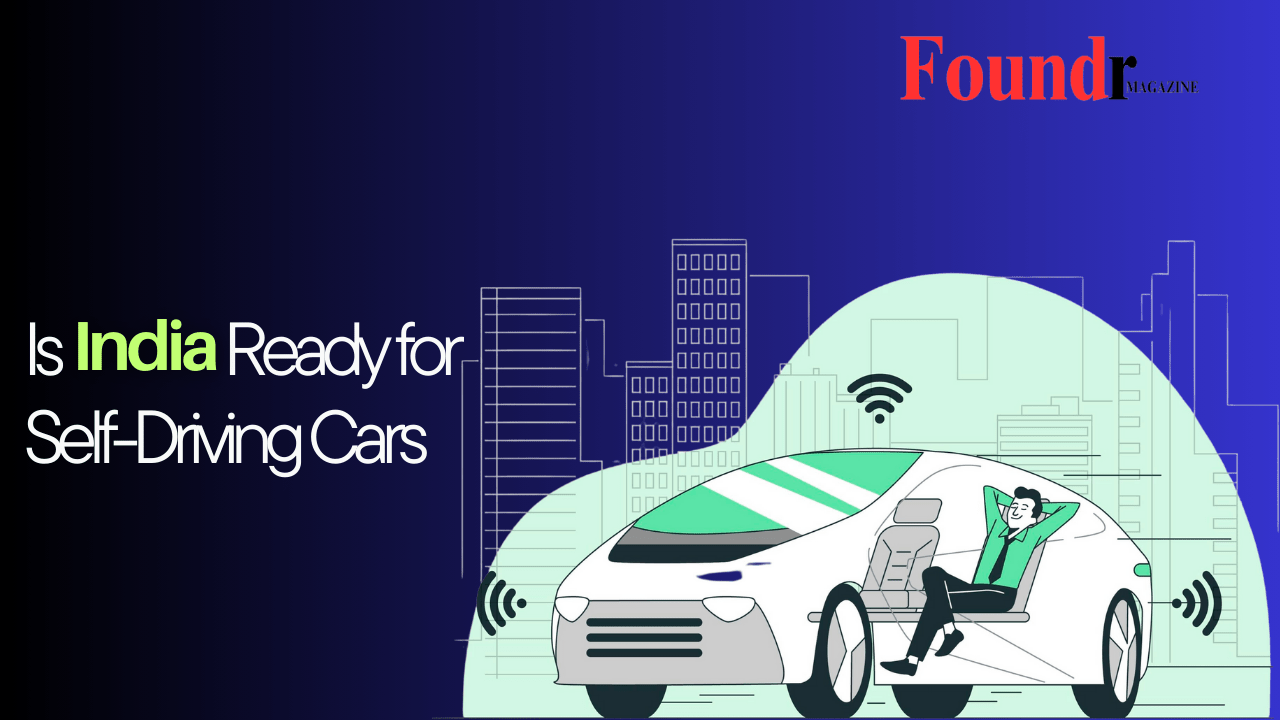Article | Foundr MAGAZINE
Is India Ready for Self-Driving Cars? 5 Pros and Cons to Consider
Self-driving cars, also known as autonomous vehicles, are revolutionizing transportation around the world. But is India ready to embrace this futuristic technology? Let’s delve into the potential benefits and challenges of self-driving cars in the Indian context.

Are Self-Driving Cars Coming to India?
While fully autonomous vehicles are still a few years away in India, the development is in full swing. Indian companies and research institutions are actively conducting trials and testing prototypes in controlled environments. The government has also shown a keen interest, with initiatives like the “Smart Cities Mission” potentially paving the way for integrating self-driving technology into urban infrastructure.
5 Pros of Self-Driving Cars in India:
Improved Road Safety: Human error is a major contributor to road accidents in India. Self-driving cars, with their precise sensors and programming, could significantly reduce accidents and fatalities.
Reduced Traffic Congestion: Autonomous vehicles can communicate with each other and optimize routes, potentially leading to smoother traffic flow and less congestion.
Increased Accessibility: Self-driving cars can provide a safe and reliable transportation option for people with disabilities who may not be able to drive themselves.
More Efficient Transportation: Autonomous vehicles can operate 24/7, potentially leading to more efficient use of public transport infrastructure.
Improved Fuel Efficiency and Reduced Emissions: Optimized driving patterns and potential for electric self-driving cars could contribute to a greener transportation sector.
5 Cons of Self-Driving Cars in India:
Infrastructure Challenges: India’s road infrastructure, with its unpredictable conditions, lack of proper lane markings, and presence of stray animals, could pose significant challenges for self-driving technology.
Technological Limitations: Current self-driving car technology might not be able to handle the complexities of Indian traffic scenarios, including aggressive driving and sudden maneuvers.
Job Displacement: The widespread adoption of self-driving cars could lead to job losses for taxi drivers, truck drivers, and other professions reliant on driving.
Data Privacy Concerns: Self-driving cars collect vast amounts of data, raising questions about data security and potential misuse.
Ethical Considerations: Determining liability in accidents involving self-driving cars remains an unresolved ethical issue.
Indian Companies Leading the Way:
Several Indian companies are actively involved in self-driving car development:
Tata Motors: Collaborating with international partners to explore self-driving technology for commercial vehicles.
Mahindra & Mahindra: Developing autonomous tractors and last-mile delivery solutions.
Swaayatt Robots: An Indian startup making headlines with its Level 5 autonomy claims (the highest level of self-driving capability).
Indian Institutes of Technology (IITs): IIT Delhi, Madras, and Hyderabad are actively involved in self-driving car research.
Government Initiatives:
The Indian government is taking steps to facilitate the development and testing of self-driving cars:
The Ministry of Road Transport and Highways has issued guidelines for testing autonomous vehicles in controlled environments.
The government’s “Smart Cities Mission” aims to integrate intelligent transportation systems, potentially paving the way for self-driving cars in urban areas.
While India has a long way to go before self-driving cars become a mainstream reality, the potential benefits are undeniable. Addressing infrastructure challenges, adapting technology, and establishing robust regulations will be crucial for India’s successful adoption of self-driving cars.
